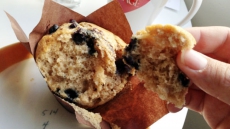Beware would-be-mommies! A study has found that daily consumption of artificially-sweetened beverages during pregnancy could result your child being obese.
Artificial sweeteners are widely replacing caloric sweeteners, due to the health concern related to sugar-sweetened beverages (SSBs) within the general population.
The study looked to investigate the long-term impact of ASBs consumption on growth through age seven among children born to women with gestational diabetes.
In particular, children born to women with gestational diabetes --the most common pregnancy complication affecting approximately 16 percent of pregnancies worldwide -- represent a high-risk phenotype, which may serve as a unique model to study the early origins of obesity.
Further evidence has linked nutritional biological disruptions during pregnancy to fetal development and obesity risk in later life.
The team investigated 918 mother and child pairs from the Danish National Birth Cohort. Enrolled participants completed four telephone interviews at gestational weeks 12 and 30, and six and 18 months postpartum, which collected data on socio-demographic, perinatal and clinical factors.

In addition, maternal dietary intake was assessed by a food questionnaire during pregnancy.
The child's body mass index scores and overweight/obesity status were calculated using weight and length/height at birth, five and 12 months and seven years.
When the children were seven years old, a follow-up questionnaire about the child's health and development was delivered to the parents.
The results showed that approximately half (45.4 percent) of women reported consuming artifically sweetened beverages during pregnancy, whereas 68.7 percent reported consuming SSBs.
Consuming artifically sweetened beverages by pregnant women with gestational diabetes was associated with a 1.57 increased risk of being overweight for gestational age babies and a 1.93-fold increase in overweight/obesity risk at seven years after adjustment for major maternal and offspring risk factors.
Substituting SSBs with artifically sweetened beverages was associated with an increased risk of offspring overweight/obesity at seven years whereas substitution of artifically sweetened beverage with water was associated with a 17 percent reduced risk.
The findings illustrated a positive association between uterus exposure to artifically sweetened beverages and birth size and risk of overweight/obesity at 7 years.





